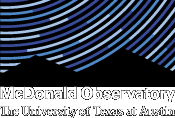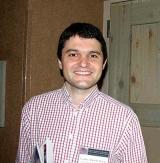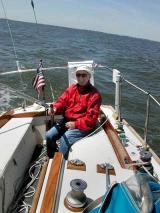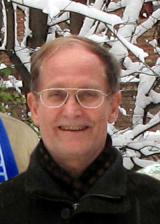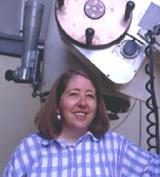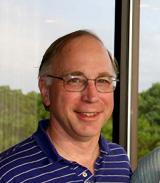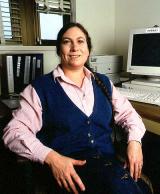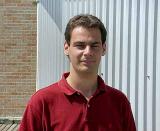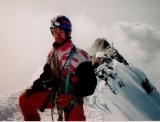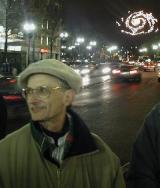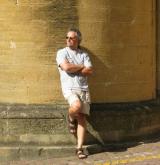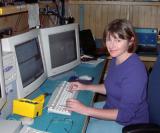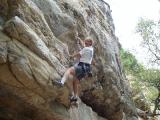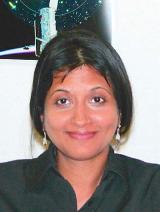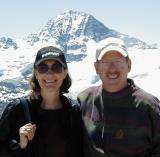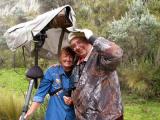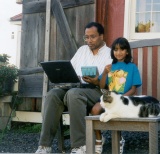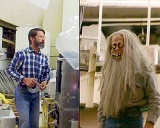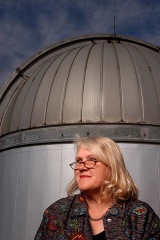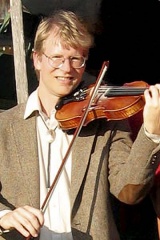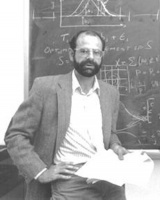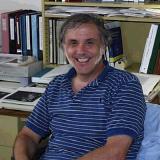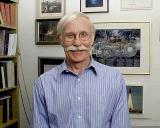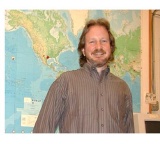Growing up in Northern Spain, Carlos Allende Prieto went to many schools there including the Universities of Oviedo, Santander, and La Laguna. His wife Elena is also from Spain. When it was finally...
Astronomers
Researchers with upcoming projects at McDonald Observatory include:
Once a mathematics major, Michel Breger was instantly won over by astronomy. "I was a math tutor and one of my students was an astronomy major. I think he taught me more about astronomy than I taught...
Twelve-year old Anita Cochran visited Brookhaven National Laboratory near her hometown of New York City. Although she had been encouraged to explore science by her father and several teachers, Anita...
The explorers of old forged into new lands and uncharted territories, pursuing conquests for their queens and kings and forming a legacy of adventure to follow them for centuries to come. Over the...
UT astronomer and professor Harriet Dinerstein grew up in the middle of New York City. The light pollution of this vast city made it impossible to see the stars at night. However, Harriet was...
"I got interested in astronomy during my studies of physics," Niv Drory says. "I had a strong interest for astronomy as a teenager, but when I started studying physics, I wasn't actually sure I...
The best part of astronomy for Research Scientist Michael Endl is the "excitement of discovery," he says. Mike uses his time at McDonald Observatory to search for extrasolar planets, that is,...
In the search for the origins of stars and planets, there are few who can match the invested time, interest, and enthusiasm of astronomer Neal Evans.
If faculty member Karl Gebhardt wasn't an astronomer at the University of Texas, he would want to be a construction worker.
When Judit Gyorgyey Ries was in the 6th grade in Hungary, she read a book about astronomy whose title is roughly translated as Tales of the Moon. It was this book that made her "totally fall in love...
Paul Harvey grew up in the suburbs of Philadelphia, Pennsylvania with two younger brothers. His dad was a mechanical engineer, and his mom was a draftswoman. From a young age, he was interested in...
Ever think about who is your model astronomer? How about a person who likes music, is in awe of old cathedrals, and first became interested in astronomy while having his appendix removed? Well,...
Just east of Madagascar in the Indian Ocean lies the tiny island republic of Mauritius, birthplace of University of Texas astronomer Shardha Jogee. With a blossoming career that just doesn't seem to...
While most people tend to see astronomy as a romantic and intellectual endeavor, Phil Kelton, Acting Superintendent of McDonald Observatory, is very aware of the nitty gritty parts of running an ob
Well known for his work on supermassive black holes in galactic nuclei, John Kormendy has done substantial work in other areas as well, notably the study of galactic bulges, the evolution of...
Pawan Kumar perhaps does not fit the popular conception of an astronomer -- he is rarely to be found burning the midnight oil in an observatory. Rather, you'd more likely find him working at the desk...
John Lacy did not consider himself an amateur astronomer. He's always liked looking at the stars, and his father pointed out constellations to him when he was a boy, but it wasn't until a friend in...
David grew up in Kent, England, just south of London. He attended an all-boys grammar school (i.e., high school).
If he weren't an astronomer, Mike Montgomery says he would have become a professional musician. Mike plays violin, and enjoys playing what he calls "root-based music. Old-time music, bluegrass, blues...
Whenever Steve Odewahn needs to relieve a little stress, he heads for the woodpile and the power tools. His furniture building hobby began while he was doing post doctoral work at Caltech. Wanting a...
Rob studied astronomy as an undergraduate at The University of Arizona. However, he had "more physics credits than any physics major that graduated that year. It wasn't astronomy instead of physics,...
"I can remember the exact moment when I became interested in astronomy," says astronomer Chris Sneden, professor at The University of Texas. He was at his home in Pennsylvania, listening to a...
Astronomy professor J. Craig Wheeler has never been a stranger to science. Even before he began to study astronomy, he was certainly influenced by his father's physics-related career. "My father...
"I can't remember a time when I wasn't interested in astronomy and horses," says Don Winget. Don is a professor of astronomy at The University of Texas at Austin. "One of my most vivid early memories...

